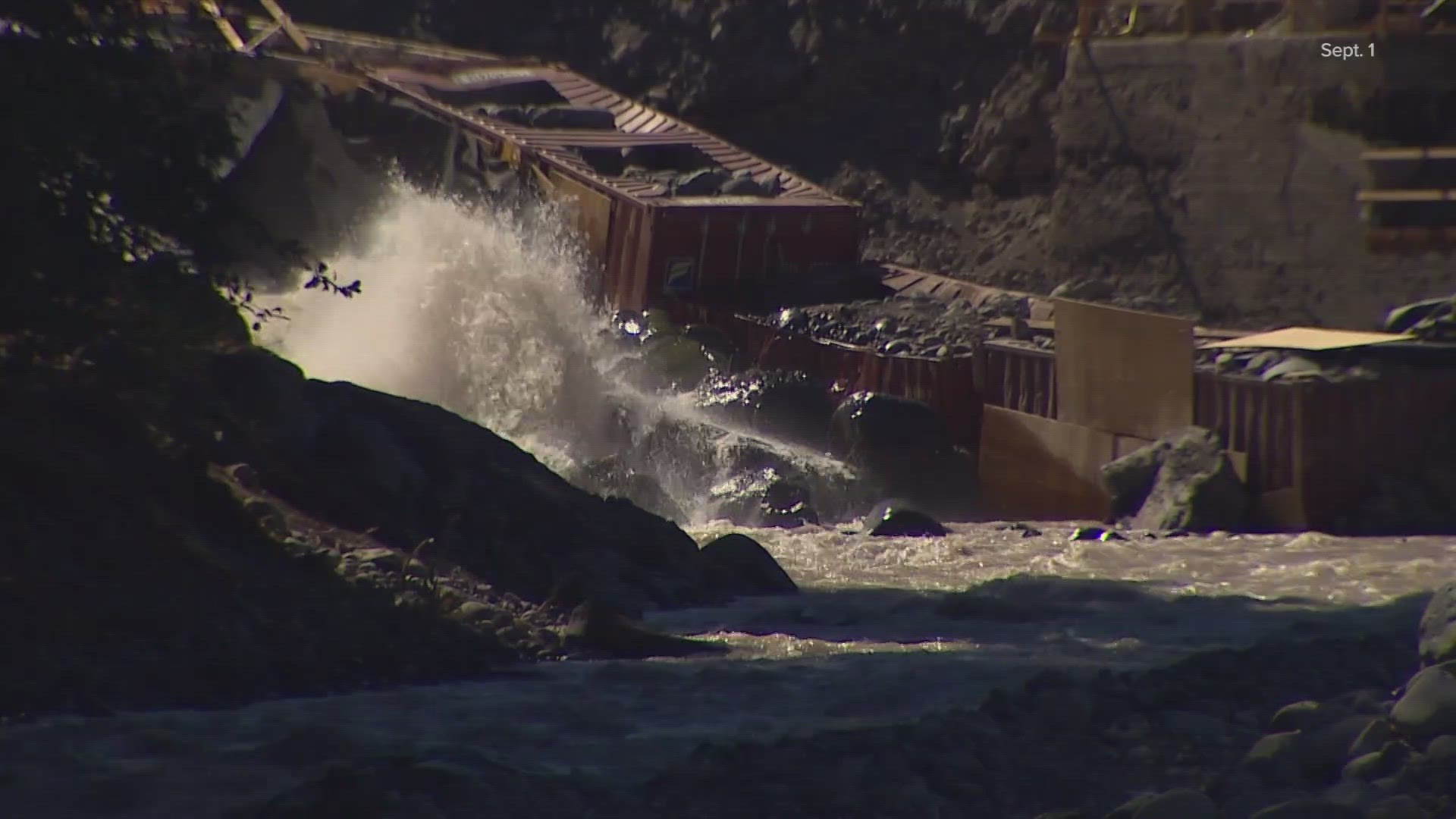TACOMA, Wash — Electron Hydro and its chief operating officer have been fined $1 million over pollution of the Puyallup River with plastic sports turf.
The company and COO Thom Fischer plead guilty in February to a gross misdemeanor violation of operating an unlawful hydraulic project.
On May 5, a Pierce County Superior Court judge sentenced Electron Hydro to pay $250,000 in penalties, the maximum corporate financial penalty. Fischer also was ordered to pay $5,000, the individual maximum.
As part of the sentence, Electron Hydro also will pay $745,000 to the Puyallup Tribal Fisheries to help restore the Puyallup River.
“This outcome directs critical resources towards restoring the Puyallup River from the damage caused by Electron Hydro’s criminal conduct,” State Attorney General Bob Ferguson said. “The Puyallup Tribe has been a steward of the Puyallup River for generations, and the Puyallup Tribal Fisheries is best positioned to preserve, restore and enhance the river.”
In January 2022, Ferguson filed 36 gross misdemeanor charges in Pierce County Superior Court against the hydropower company and its COO. The charges include violations of the state’s Water Pollution Control Act, Shoreline Management Act and Pierce County code.
In October 2020, the Puyallup Tribe claimed that Electron Hydro, the hydropower company behind the Electron Dam, polluted the Puyallup River with crumb rubber from artificial turf, a claim they later sued the company over in federal court.
Roughly eight months later, the Washington Department of Ecology announced it would fine the company more than $500,000 for the violation.
The pollution was caused by an Electron Hydro construction site that was doing work in-stream and using artificial turf to create a bypass channel to divert the river away from the site beginning on July 28, 2020, according to the department.
The goal of the construction was to replace the company’s diversion dam and water intake structure, which dates back to 1903.
Pieces of sports turf were found up to 21 miles downstream, according to the Department of Ecology, and deposits of ground-up tire rubber used as padding for the turf were believed to go roughly 41 miles downstream all the way to the river’s mouth and possibly into Commencement Bay in Tacoma.

